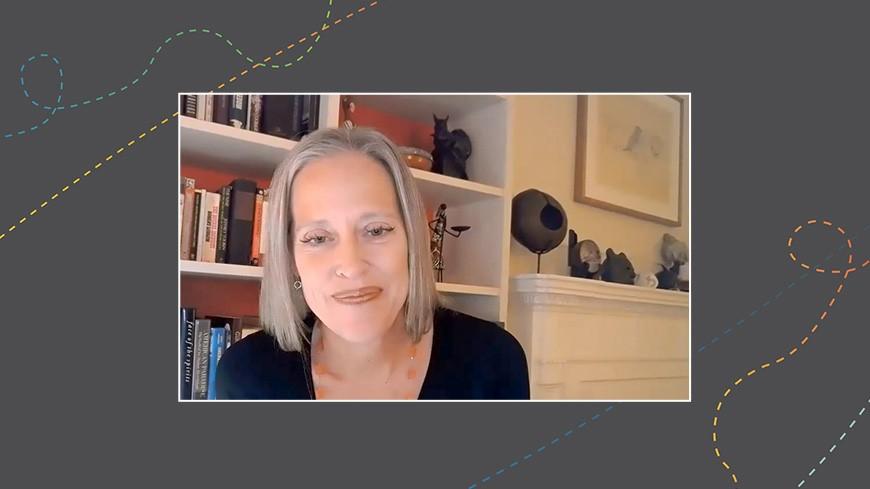Wendy Kopp Reflects on the 2020 Teach For All Global Conference

Among the many things that this pandemic has changed across the Teach For All network is how we come together and learn from each other. Our original plan had been to convene for our 12th Global Conference this year in Lima, hosted by Enseña Perú. Our Global Conferences have been so important in enabling the relationships and collective learning that are foundational for our network, and we were very sad to have to cancel what would have been an enriching Peruvian experience. Nonetheless it felt crucial to maintain our network tradition of coming together—even if that meant doing the whole thing online for the first time. In the run-up, I think we were all wondering: Is it going to work? Will anyone want to spend three days on more video calls? Will we be able to have meaningful connection and learning when we’re not all physically together? At the same time, we were determined to embrace the new opportunities a virtual event afforded us—making the event open to our entire network community, attracting speakers who might not be able to join an in-person event.
In the end, our first-ever virtual Global Conference drew 2,300 people from 104 countries. We came together to deepen our understanding of the inequities we’re addressing, to find new possibilities in this era to accelerate progress, and to support each other as colleagues with a shared purpose. I think we accomplished these objectives and more.
For our first Daily Assembly, some of our most thoughtful advisors shared their biggest concerns, the new possibilities they see, and their advice for our network. I’m still mulling on all that they shared, and also taking energy from their belief in the potential of Teach For All!
On the conference’s second day, we were energized and inspired by a conversation between 2014 Nobel Peace Prize winner Malala Yousafzai and 11-year-old Teach For Nigeria student and education advocate, Chidinma Oraegbunam. There were so many powerful moments in this 15-minute discussion! One of my favorites was when Malala encouraged Chidinma and other young people to raise their voices. “With time, you see that people start listening to you,” she said. “What I’ve learned from my activism is that the voice of one girl can be powerful—that it can scare people with guns.”
Indeed, students contributed so powerfully throughout the conference. Be sure to check out the global song they created, “I Am Because We Are,” if you haven’t already! I was also personally so impressed with the student facilitators from Kids Education Revolution during the Student-Adult Partnership track. Together with the adults from Teach For India, they built our collective understanding about how to create safe spaces for student voice, foster partnership among students and educators, and develop students as changemakers.
The conference featured 50 Leadership & Learning sessions and 40 community building spaces, and I found every discussion I participated in enriching! Among these, it was an honor to have Andreas Schleicher, Director of Education and Skills at the OECD, join us just hours after he released the 2018 PISA results, which for the first time included measures of global competence. Andreas joined us for an open discussion about the implications for developing students’ understanding of local and global issues and their ability to work across cultures, because he believes the results are particularly important for our global network. The final day of the conference showcased our annual Network Breakthroughs, featuring representatives of all five Teach For All regions. I was so inspired by their energy and the pioneering ways so many across our network are building collective leadership.
Personally, I came away from the conference feeling a still deeper sense of responsibility. The inequities we’re addressing are not only revealing themselves to the world, but they are growing dramatically during this era. It’s also clear that there are many new possibilities. We can discard the old paradigms that aren’t serving us. We can build still deeper and broader and more diverse partnerships and coalitions. We can, together, rethink what we want for ourselves, our communities and countries, and our global society—and therefore what we need to work towards in education.
As our advisor Fernando Reimers warned us, the path of least resistance will be to gravitate back to the way things were before the pandemic—a status quo that will not be up to the challenge at hand. It will be our responsibility to make sure that this doesn’t happen. We need to slow down and be present and generous with ourselves so that we can see the new possibilities, and at the same time we need to think and act still more boldly.
I’m so grateful to all of those who came together and participated so actively last week, to the 300 speakers who lent their wisdom and perspective, to Citi for underwriting the event as our Global Learning Partner, to Zoom for powering it with technical and in-kind support, and to our incredible team who made it happen behind the scenes!



